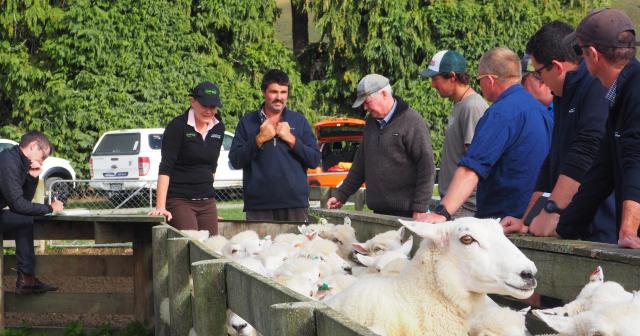Seven Beef + Lamb New Zealand Livestock Parasite Management Groups around the country are helping farmers build the know-how, confidence, and support network to try new ways of managing parasites – so they can reduce drench resistance or farm successfully even when it's present.

Internal parasites and drench resistance are among the most pressing challenges facing New Zealand livestock farmers today.
Launched as an extension of a successful three-year pilot in the Wairarapa, these small, farmer-led groups are now active in seven regions: Hawke’s Bay, Gisborne, Waikato, Northland, North Canterbury, and Southland, with the Wairarapa group deciding where to next.
Cara Brosnahan, B+LNZ Principal Scientist – Animal Health Research says each group is tailored to local conditions and farmer needs. They all share a common goal of empowering farmers with knowledge and confidence to tackle drench resistance and improve parasite control in their farm systems using B+LNZ Wormwise principles.
The programme is just one year into its three-year rollout, but early feedback is very positive.“We’re seeing farmers grow in confidence,” says Cara. “They’re asking great questions, making more informed decisions, and supporting each other through the process.”
A collaborative approach to a complex problem
The farmer learning groups are designed to be practical, hands-on, and farmer-driven. Each group meets four times a year, often visiting a different group members farm. The host farmer shares their current parasite management practices and challenges, and the group collectively discusses potential improvements, with support from the veterinarian facilitators and input from other SMEs where needed.
“Everyone starts from where they’re at,” says Greg Tattersfield, facilitator for the Gisborne group. “It’s not about prescribing a one-size-fits-all solution, it’s about learning together and adapting strategies to suit each farm’s unique situation.”
Richard Lee, who facilitates one of the Hawke’s Bay groups, agrees. “The conversations are real, and the changes are tangible. Farmers are excited about what they’re learning and the improvements they’re already seeing.”
Keen to know more?
An upcoming field day will be held in the Wairarapa on 2 September, led by facilitator Sara Sutherland.
- Learn more about the B+LNZ Livestock Parasite Management Groups.
- Learn more about B+LNZ’s Focus Groups and other topics farmers are digging into.